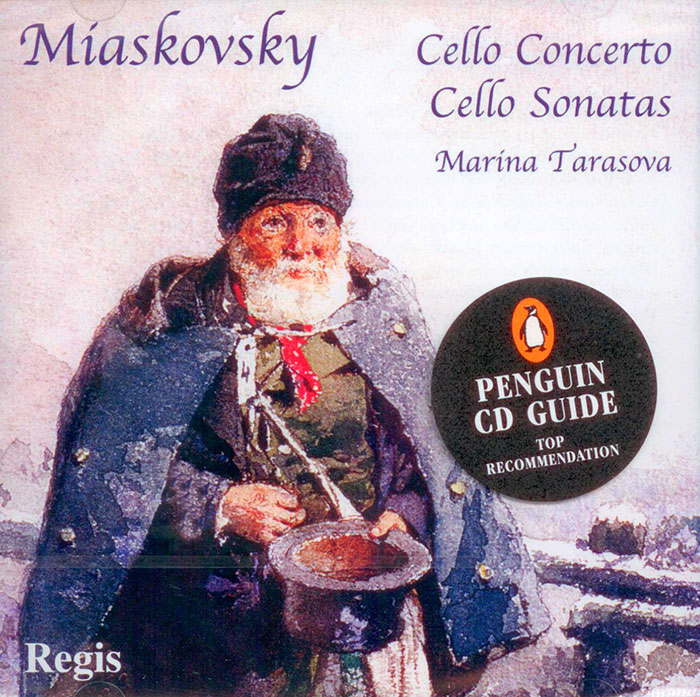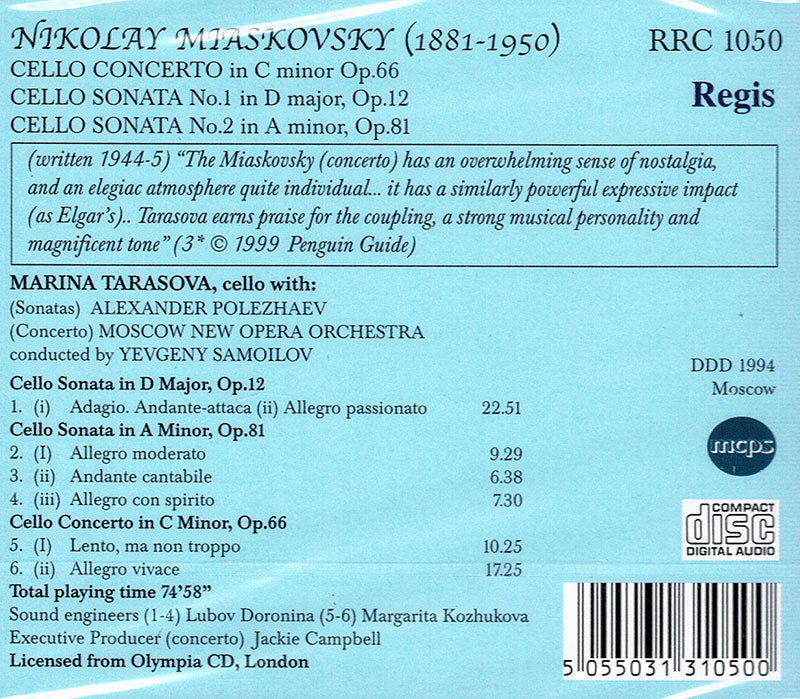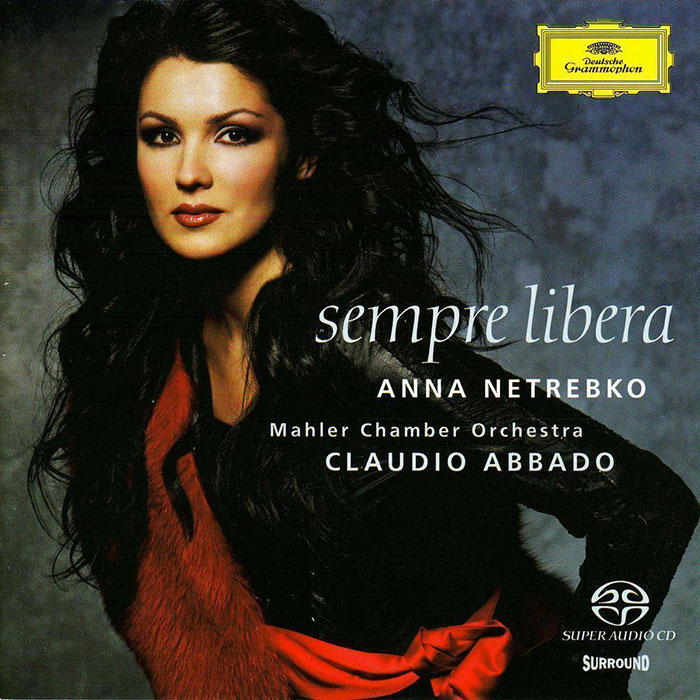Logowanie
OSTATNI taki wybór na świecie
Nancy Wilson, Peggy Lee, Bobby Darin, Julie London, Dinah Washington, Ella Fitzgerald, Lou Rawls
Diamond Voices of the Fifties - vol. 2
Tylko 1000 egzemplarzy!!!
DVORAK, BEETHOVEN, Boris Koutzen, Royal Classic Symphonica
Symfonie nr. 9 / Wellingtons Sieg Op.91
nowa seria: Nature and Music - nagranie w pełni analogowe
Petra Rosa, Eddie C.
Celebrating the art and spirit of music - vol. 3 - Pure
warm sophisticated voice...
Peggy Lee, Doris Day, Julie London, Dinah Shore, Dakota Station
Diamond Voices of the fifthies
Tylko 1000 egzemplarzy!!!
SAMPLER - STS DIGITAL, Buddy Tate, Milt Buckner, Walace Bishop
Jazz Masters - Legendary Jazz Recordings - v. 1
proszę pokazać mi drugą taką płytę na świecie!
Chesky! Niezmiennie perfekcyjny
Winylowy niezbędnik
ClearAudio
Double Matrix Professional - Sonic
najbardziej inteligentna i skuteczna pralka do płyt winylowych wszelkiego typu - całkowicie automatyczna
MIASKOVSKY, Marina Tarasova, Moscow New Opera Orchestra, Yevgeny Samoilov
Cello Concerto / Cello Sonatas 1, 2

- Cello Sonata in D Major, Op.12
- 1. (i) Adagio. Andante-attaca (ii) Allegro passionato 22.51
- Cello Sonata in A Minor, Op.81
- 2. (i) Allegro moderato 9.29
- 3. (ii) Andante cantabile 6.38
- 4. (iii) Allegro con spirito , 7.30
- Cello Concerto in C Minor, Op.66
- 5. (i) Lento, ma non troppo 10.25
- 6. (ii) Allegro vivace 17.25
- Marina Tarasova - cello
- Moscow New Opera Orchestra - orchestra
- Yevgeny Samoilov - conductor
- MIASKOVSKY
"concerto an overwhelming sense of nostalgia... similarly expressive impact as Elgar's" (Penguin Guide 3*) Nicolai Myaskovsky (Nikolay Miaskovsky) Nicolai Yakovlevitch Myaskovsky (1881 - 1950) was one of the most prolific of twentieth century composers and as a teacher, held great influence at the Moscow Conservatoire from 1921 until his death. He himself, following miltary service, studied under Liadov and then Rimsky-Korsakov at the St Petersburg Conservatoire. Whilst at the Conservatoire he struck up a close friendship with the younger Prokofiev and both made their compositional debuts at the same concert. Unfortunately Myaskovsky's career was interrupted by the First World War during which he was seriously wounded and, suffering from shell shock, he was eventually invalided out of the army. He moved from St Petersburg to Moscow and in 1921 was appointed Professor of Composition where his own pupils included Khachaturian, Kabalevsky and Shebalin. He kept abreast of modern trends in music, being almost as prolific a writer as composer but even so was perceived as being `out of touch' by the younger generation of Soviet composers who came to the fore under Stalin. It was perhaps because of this that Myaskovsky was one of the famous group of composers denounced by the Communist Party in 1948 for `formalist' tendencies. Among his compositions are 27 symphonies, 13 string quartets, symphonic poems, songs, several piano sonatas and concertos for violin and cello. Myaskovsky's First Cello Sonata in D Major was composed in 1911 but underwent substantial revision in the years 1930 - 31. During the late 1920s Myaskovsky suffered a personal crisis and abandoned composition of orchestral pieces, concentrating instead on small scale material - works which were not necessarily to the liking of the authorities, who were at that time beginning to proscribe the activities of artists, writers and composers. The first movement of the sonata begins with a cello recitative whereupon the piano enters with the main melody, repeated by the cellist. This lyrical passage reminiscent of Rachmaninov is interrupted by a series of staccato chords and gives way; tension begins to mount as the tempo increases. This Allegropassionato section, distinguished by the piano's arpeggio accompaniment is not however allowed to dominate and a brief pizzicato passage leads us back into the reflective mood of the opening. Additional ideas are extensively developed. A strident passage links this development section with the exquisite close in which Myaskovsky seems undecided as to whether this sonata should end in the major or the minor. As he settles on D major, the music dies away peacefully. The Second Cello Sonata in A minor was composed during the summer of 1948 for the young Rostropovich. Myaskovsky's original plan had been a sonata for viola or viola d'amore, and although a version of this sonata arranged for viola exists, this arrangement was not by the composer. Piano arpeggios lead into a folk-like cello melody which is fully developed alongside a similarly thoughtful theme in C major. In fact the tone of this movement is similar to the corresponding movement in the First Cello Sonata. The second movement, in triple time, has two livelier themes contrasting with the main motif, which returns to give the movement a peaceful, if subdued, conclusion. The cellist Knushevitsky once reproached the composer for not writing more fast music in the sonatas, to which Myaskovsky replied that it had been his original plan to introduce a minuet in the second movement but had later changed his mind. And so the rondo finale provides both soloist and accompanist with their first opportunity in either sonata to exert themselves energetically. Both themes seem rooted in Russian folklore, the one foot-stamping, the other more lyrical. The Cello Concerto in C minor opus 66 was composed in 1944 - 5 for Knushevitsky and in comparison with much of Myaskovsky's work is scored relatively modestly. The Cello Concerto is probably Myaskovsky's best known work in the West following the pioneering recording from 1956 with Rostropovich playing with the Philharmonia Orchestra under Sir Malcolm Sargent. Its elegiac tone of quiet resignation has inevitably drawn comparison with Elgar's Cello Concerto and it is interesting that both carry the same sense of world weariness - the Elgar being composed just following the First World War, the Myaskovsky in the dying days of Russia's Great Patriotic War. The work has two named movements but is clearly further sub-divided into sections. The opening movement Lento ma non troppo is melancholic in tone with the cello soloist's range restricted for much of the time to the octaves surrounding middle C, thus drawing it into conflict with the remainder of the string section. Eventually the movement undergoes a change from C minor to C major, after which the soloist's run from low C to high G leads into the second movement, marked initially Allegro vivace. Agitated tarantella-like triplets played by strings on the notes C and E are contrasted with a more relaxed lyrical theme from the cello in C major. A powerful tutti followed by bass pizzicato provides the link to a gently lyrical passage which however is disturbed by the return of the opening triplet passage. Much of this material is developed further until an extended solo cadenza leads into a section restating material from the opening movement. Myaskovsky repeats his magical change from C minor to major, thus resolving any residual conflict and the concerto ends peacefully. Marina Tarasova, who studied first at the Gnesin School in Moscow and then at the Moscow Conservatoire is an experienced soloist and prize-winner on her instrument, culminating in being awarded the Grand Prix in Paris in 1985. She has toured with a number of respected conductors including Rozhdestvensky and Bashmet. Tarasova has a special working relationship with the pianist on this disc, Alexander Polezhaev who is also a graduate of the Gnesin School. Because of his numerous appearances on the concert platform and as a musicologist on Russian Radio, Polezhaev is a highly respected figure in Russian music. The conductor Yevgeny Samoilov was born and trained in St Petersburg and specialises not only in mainstream works but also in more challenging scores by Gubaidulina, Denisov and Schnittke. © 2001 James Murray






























